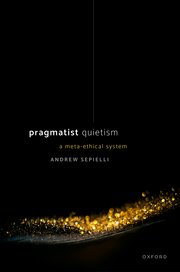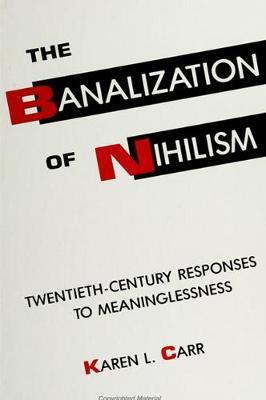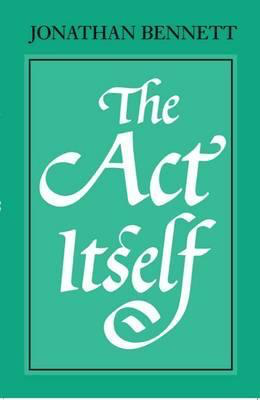Pragmatist Quietism in Meta-Ethics

Interview by Richard Marshall

''Some would say that meta-ethics is inquiry into the metaphysics of moral properties, the semantics of moral expressions, the psychology of moral judgment, and the epistemology of the moral realm. I’d prefer to characterize meta-ethicists as trying to fit ethics and ethical inquiry into a more general account of the world and our ways of understanding it. There are many paths into meta-ethics.'
'I think that if we want to end up saying the right things about the status of ethical debate and inquiry, and also explain why it’s so tempting to believe the wrong things, we need to start with these two materials — the superficiality/depth of inquiry and debate, and the distinctive roles of ethical judgments vis a vis motivation and affect. '
'To me, the appeal of naturalism over non-naturalism lies entirely in that the former seems, on its face, to offer a better explanatory package, commits us to fewer brute facts and unsolved mysteries. But I try to make the case that my version of pragmatism does at least as well from an explanatory point of view as does any version of representationalism, including any kind of representationalist naturalism.'

Andrew Sepielli has published work on ethics, meta-ethics, pragmatism, and the philosophy of law. Here he discusses meta-ethics, the depth/superficiality distinction, motivational and affective roles, why ethics feels subjectivist, objectivist quietism, self-justification, pragmatism, the autonomous domain of ethics, quietism in moral epistemology, the debunking argument, contrasts with the quasi-realist/expressivism of Blackburn, Gibbard, Horgan and Timmons, the ‘counter-normativity’ and ‘schmeasons’ argument of Enoch and McPherson, whether meta-ethics is more than merely a philosophical puzzle, and whether his view is anti-naturalist.
3:16: What made you become a philosopher?
Andrew Sepielli: I don’t remember being curious about philosophical questions as a kid. I never liked abstract intellectual puzzles or games of strategy, and I wasn’t much of a reader (to be honest, I’m still not — my attention span isn’t the greatest). I do remember being fascinated by how parts worked together in systems. I was into things like building and modifying radio-controlled cars, taking the servomotors from those cars and building other devices, and later, designing contraptions for science and engineering competitions. I actually started college as a mechanical engineering major. That interest in systems was one thing that brought me to philosophy. (I subtitled my first book “A Meta-Ethical System” quite deliberately — I see it as very important that we treat meta-ethics not as a series of puzzles, but as an attempt to integrate our views about the uncanny realm of ethics into a more general philosophical system or world-picture.) I’ve also been extraordinarily sensitive and emotionally labile for as long as I can remember. For example, I ruminated a lot about death when I was young; part of this, I’m sure, was because my father died when I was seven, but part of it, I think, was constitutional. I also remember being really shaken by episodes of cruelty that other people — including very kind, warm-hearted people — seemed to be able to shrug off.
And so, for instance, I recall as a teenager feeling alternately furious and dejected at the willingness of political figures to support what seemed like very harmful policies based on these obnoxiously facile arguments. So when I discovered philosophy in college, it appealed to me partly as a way to expose such arguments for what they were, and to lay low those who trafficked in them. Of course, philosophy carries dangers all its own for sensitive types. When I first came to think seriously about the possibility that we lack free will, or that there are no objective moral truths, I felt like I was caught in this cold, grey netherworld for a long time afterward. But ultimately, that only made philosophy more compelling; it seemed to me that once I had been cast into that world, the only way out was more philosophy. (Still haven’t managed to convince myself not to fear death, though!)

3:16: You’ve recently written a book on pragmatist meta-ethics. So first, could you sketch for the uninitiated what philosophers are up to when they embark on meta-ethics rather than just ethics and say what are the ‘raw materials’ for your own meta-ethics in particular your depth/superficiality distinction, and the motivational and affective roles of ethical thought?
AS: Some would say that meta-ethics is inquiry into the metaphysics of moral properties, the semantics of moral expressions, the psychology of moral judgment, and the epistemology of the moral realm. I’d prefer to characterize meta-ethicists as trying to fit ethics and ethical inquiry into a more general account of the world and our ways of understanding it. There are many paths into meta-ethics. You might just find it mysterious how ethical judgments can play both the motivational roles and the inferential roles that they seem to play. You might be engaged in normative ethics — arguing about what’s right, and what’s wrong, and why — and start to worry about whether such an enterprise can really yield knowledge, or is just a bunch of opinion-mongering. You might be worried about the threat of nihilism, and hope that meta-ethics might help us to overcome it. And so on.
When I talk about “raw materials” in my book (Pragmatist Quietism: A Meta-Ethical System), I mean those features of ethical discourse and practice that one can apprehend without the aid of philosophical theory, that might serve as the starting points for a diagnosis of what’s going on with ethics. For me, the “raw materials” are what I call the “depth” and “superficiality" of an episode of debate or inquiry, and the particular causal roles vis a vis motivation and affect that ethical judgments seem to have. For a debate to be deep is basically for the conclusions one forms pursuant to it to influence the non-conceptual representations one is disposed to form, and to influence one’s actions in what, for brevity’s sake, we can call a “map-like” or “distinctly representational” way. A debate is superficial if and only if it’s not deep.
A good example of a superficial dispute that’s not ethical is the one William James describes at the beginning of his book Pragmatism. James and hiking companion come upon a man chasing a squirrel around a tree, and begin to argue about whether the man thereby going around the squirrel (hereafter: Squirrel). It’s one I come back to again and again in the book. I also think that the disputes that tend to be called “normative ethics” — e.g. about whether utilitarianism is true (hereafter: Utilitarianism), or about which if any theory of property rights is correct — are superficial (which, again, doesn’t mean they aren’t important — “superficial” is a term of art for me).
As for deep, non-ethical disputes, examples are legion: an ordinary dispute about whether there are any socks in the drawer (hereafter: Socks), a scientific dispute about whether the velociraptor had feathers, etc. Finally, there are ethical disputes that are deep rather than superficial, but these aren’t the ones that usually get called “normative ethics”. Suppose we were discussing where to go for drinks; I recommend a place and you say “No, that radio station is doing a promotion there tonight; the place is going to be filled with assholes.” I say “No it won’t; that station promotion is next week.” We’re having an ethical debate —namely, about whether there will be lots of assholes at the bar, but it’s different from debates like Utilitarianism in the ways mentioned above. I think that if we want to end up saying the right things about the status of ethical debate and inquiry, and also explain why it’s so tempting to believe the wrong things, we need to start with these two materials — the superficiality/depth of inquiry and debate, and the distinctive roles of ethical judgments vis a vis motivation and affect.
3:16: You think objectivists have failed to answer the question as to why, if it is objective, ethics looks so subjective. You provide an answer. Can you take us through your thinking here – and why do you think so many objectivists haven’t answered this issue?
AS: The basic argument goes like this: As I said earlier, there are both superficial and deep ethical disputes, and both superficial and deep non-ethical disputes. Deep disputes seem to admit of objectively right answers; superficial ones don’t. But then, if there are disputes in, as it were, “all four boxes”, why do we look more suspiciously upon claims to objective truth in ethics than upon such claims regarding most other domains? Well, go back to the examples above. We typically treat deep non-ethical disputes as “what we’re talking about”, and superficial non-ethical disputes as “not what we’re talking about”, when we say that disputes about feathers, and socks, and so on, have right answers. By contrast, due to the special connection to motivation and affect that ethical judgments have, the disputes that “we’re talking about” when we talk about “normative-ethical disputes” are the superficial ones. A perhaps-too-strong way of putting it is that we’re fooled by the significance — the practical and affective significance — of superficial ethical disputes into thinking that they’re substantive debates akin to Socks. And then when we see that they lack the traditional indicia of having right answers — although, ultimately, I do think they have right answers — we “hold it against” ethics, generally, in a way that we don’t hold the absence of signs of a right answer in Squirrel against inquiry into squirrels and motion, generally. There are more twists and turns, but that’s basically what I think is going on.
As for why other objectivists haven’t really addressed this issue — that’s an interesting question; here’s my speculation: I’m really concerned to convince people that my view is right, and more generally, that morality really is objective in the sense I have in mind. And so I ask myself: “What’s the sort of thing that would convince *me?*” Well, as I remark throughout the book, I tend to be more convinced by the clearing-up of mysteries than by the beating-back of discrete objections. And one of the mysteries that would still be outstanding for me, even if I were otherwise convinced of a position, is why that position nonetheless struck me and still strikes many others as tough to swallow. Without a satisfying explanation, consistent with the truth of the position, I’d feel as though I were being pressured into a purchase by an overly aggressive salesperson. I’m inclined to think that other objectivists either aren’t as concerned as I am to convince people — which, y’know, is probably the healthier attitude to have! — or are themselves apt to be swayed less by the clearing-up of mysteries and more by, say, the trouncing of counterarguments.
3:16: So what’s objective quietism and how do you support this position by explaining what you mean by ‘truthy’ values and why metaphysics, semantics and anything else outside of ethics are irrelevant?
AS: Objectivism is basically the view that morality is relevantly independent of our patterns of approval and disapproval — and, apropos of an objection we’ll get to later, of our conceptual schemes. Quietism is the view that the only things that bear on which, if any, ethical views to accept in the relevant sorts of debate and inquiry are considerations that matter ethically. There’s much more to say about what “mattering ethically” amounts to, but for the moment, let me just say that I don’t think that the metaphysics of moral properties, the semantics of moral terms, and so forth, are among the things that matter ethically.
The first-pass version of the argument for quietism goes like this: The kinds of ethical disputes that tend to get called “normative ethics” — Utilitarianism, and so on — are superficial. Their conclusions mediate action and affect in a way that those formed pursuant to other superficial disputes do not, but they are superficial all the same. Superficial disputes are non-substantive, and so I do no better at accurately representing the world by taking one side of such a dispute than I do by taking another side, or by refusing to take a side at all. But things like the metaphysics of moral properties, the semantics of moral expressions, and so on, can generally bear on which beliefs to adopt only by bearing on whether adopting those beliefs makes one’s representation of the world more or less accurate. Since accurate representation isn’t even “up for grabs” in so-called “normative-ethical” disputes, these pillars of meta-ethics are irrelevant to the positions we should take within them. If these “pillars” don’t tell one way or the other in normative ethics, does that mean that there’s no right way to go, as seems to be the case in disputes like Squirrel? I argue that the answer is “no”, because, as I said, normative ethical debates have a “link” with motivation and affect. As a result, I want to claim, it matters which way you go in them — although, again, not because there’s anything like accurate representation of the world, in any robust sense, up for grabs. Rather they afford what I call “specifically ethical value” — basically, the value of doing the right things for the right reasons.
I also go on to construct a kind of ethical truth out of specifically ethical value. But again, that’s just the first-pass version of the argument. Ultimately, I don’t want to claim that superficial disputes — ethical or otherwise — are non-substantive; rather, I simply want to say that they fail to afford what I call “truthy” values. Truthy values are those values that we typically think are bound up with accurate representation of the world; the three truthy values are what I call “predictive value”, “general practical value”, and “representational value”. A full explanation of why I opt for this evaluative take on what’s distinctive about superficial disputes rather than the characterization in terms of substantivity or representation would take us really, really far into the weeds. But two advantages can be explained quickly: First, I want to say that normative ethical disputes afford truth and falsity, but this doesn’t seem possible if we say that they are non-substantive. Second, I want to preserve the autonomy of the evaluative realm. Part of that involves casting things like moral metaphysics and moral semantics as irrelevant. But my argument for their irrelevance rested on some theory of substantivity or representationality, then that would also count as an infringement (albeit a less blatant one) on the autonomy of the evaluative, on my view.
So yeah, there’s a lot more to say, and that I do say in my book, but that’s the basic idea — that superficial disputes of the kind we tend to call “normative-ethical”, don’t afford truthy values (and so are just like Squirrel in that respect), but do afford specifically ethical values (and so are quite unlike Squirrel in another respect).
3:16: Why don’t you think that these reasons are question-begging?
AS: The worry, I take it, is that I construct ethical truth from the ethical value of holding an ethical belief, and shield the evaluative realm from what Ronald Dworkin would call “external skepticism” through arguments with evaluative premises? Well, if that’s it, I think my argument is basically question-begging. But I think everyone is in the position of having to either beg the question against, or, at a certain point, just have nothing to reply to, certain interlocutors. For instance, those who wish to vindicate ethics by appealing to something like a theory of reference for ethical terms, or who so much as rely on a theory of truth, must, on penalty of bruteness, show that and how “reference” refers, or that their theory of truth is itself true. It seems difficult to do that in a theoretically unified way without begging the question. And when my sensitive soul can bear to engage with “philosophy Twitter”, I sometimes see people mocking metaphysical inquiry into questions like “what grounds grounding-facts?” and so forth; usually the response in my head is “mock all you want, but I kinda think you’re on the hook for this one, too”. Question-begging is everyone’s lot — or at least, the best lot one can hope for.
The bottom line is that I think that it’s fine if a vindicatory strategy is question-begging, so long as it achieves a kind of explanatory unity through which mysteries are not left to linger. And I think my strategy does just that. That’s because my, if you will, “values-first” vindication of objectivist quietism about ethics is of a piece with the similarly “values-first” manner of vindication that I favour for claims and domains across the board, from fundamental physics to sports prognostication. This is the manner of vindication that I call “pragmatist”.
 3:16: What do you mean by pragmatism in this context, and why does it provide you with a better vindication of ethics than its main rival, representationalism?
3:16: What do you mean by pragmatism in this context, and why does it provide you with a better vindication of ethics than its main rival, representationalism?
AS: The character I call the “representationalist” endeavours to fundamentally guide their beliefs by considerations thought to bear on their representational accuracy; the “pragmatist” endeavours to fundamentally guide their beliefs by considerations thought to bear on their value or the reasons for/against holding them. This can include “truthy” value, mind you, as well as “specifically ethical” and other value. So there are actually no propositions about which the pragmatist and the representationalist need disagree.
The difference between them is a difference in order or manner of inquiry. I think pragmatism is superior to representationalism in many ways, but if you’re just asking about it as a vindication of ethics, the story basically goes like this: Disputes like Squirrel seem to be arbitrary in a way that those like Utilitarianism are not. The representationalist way of capturing or explaining this would be that the dispute affords representational accuracy — even if the accurate side is the “error theoretic” one that says utility-maximization doesn’t make actions right because nothing is right or wrong. But this way of drawing the line doesn’t seem tenable, as I suggested above. I think the difference between these two disputes is fundamentally ethical — that Utilitarianism affords specifically ethical value, and that’s why it’s non-arbitrary which way you go in it, why you can’t just stipulate that some position within it is correct, and so on. But now once our explanation of right ways to go in ethics is fundamentally evaluative, we achieve explanatory unity only if we then vindicate other beliefs and domains worthy of vindication in like manner — e.g. if we endeavour fundamentally to hold beliefs within the sciences or about ordinary everyday matters of fact insofar as they have positive “truthy” values. As I put it in the introduction to the book, the pragmatist turns what seems like the dangling explanandum — value, reasons, however you want to put it — into the universal explanans.
Now, some might say that this is a revisionary way of vindicating these other beliefs and domains — that common sense favours representationalism. But I try to show that this is too quick. When I say that pragmatists “endeavour to fundamentally guide their beliefs” by these evaluative considerations, the “fundamentally” is doing a lot of work. One can endeavour to fundamentally guide a practice by a consideration even if that consideration receives conscious attention only in rare, particularly reflective contexts. Once we see how this fundamental value-guidedness works in practice, I think it comes off as in many ways more in keeping with common sense than does representationalism. I also try to make the case that more philosophers are incipient pragmatists than might like to admit it; common philosophers’ locutions like “…in the sense that matters…”, “…worth wanting…”, “…in any meaningful respect…” are, as I put it, “tells” — and are especially suggestive of pragmatism when they are appended to nouns like “truth” and “representation”, descriptions like “about the world” and “substantive”.
3:16: You argue that ethics is an autonomous domain but you note that many meta-ethical positions – Wittgensteinians, Kantians and Humeans for example - don’t survive if this is so. Can you explain where they go wrong?
AS: Well, I don’t want to get too hung up on the proper names. For example, in the part of the book you’re referring to, I inveigh against philosophers who interpret Wittgenstein as having a “use” theory of meaning, and then try to draw out both small-c and big-C conservative implications for ethics. But I’m not at all suggesting that their interpretation of Wittgenstein is right. But yeah, these are just some of the philosophers who treat ethics as something other than an autonomous domain, by letting semantic or metaphysical or other “external” considerations steer their ethical theorizing. I think that’s a mistake. As I’ve argued, such considerations could bear on which ethical views to accept only if the kinds of debates in question (“normative ethical” disputes, which, I’ve claimed are superficial) afforded some kind of “truthy” value — the sort of value that is, intuitively, associated with accurately representing the world in a robust sense. But normative-ethical disputes don’t afford truthy values, and so such traditionally “meta-ethical” considerations, which don’t bear on “specifically ethical” value in the way that happiness, freedom, and so forth would seem to, are irrelevant to fundamental ethics.
Here are a few additional examples: There are many meta-ethicists who favour reductive naturalism about ethics over non-naturalism on grounds having to do with “queerness” or “ontological parsimony”. Some of them proceed from there to argue for some particular theory of reasons or rightness — a desire-dependent view, in some cases, utilitarianism in some others — on the grounds that this yields the most plausible reduction. But this seems like the wrong way to proceed if normative-ethical disputes fail to afford truthy values — or, to a first approximation, aren’t representational — in the first place. Again, I don’t think it’s unreasonable to speculate that philosophers who proceed in this way are fooled by the significance of superficial normative-ethical disputes into assimilating them to debates like Socks, when in fact they’re much more like Squirrel in respect of representationality or truthy value. Or here’s another case: Elizabeth Anscombe seems to reject views like consequentialism largely on the grounds that they’re not plausibly construed as theories of “thick” domains like justice; if they’re halfway-plausible theories of anything, it’s of what we morally ought to do. But, Anscombe argues, the moral ought lacks “sense”, and so there’s nothing that we morally ought to do. Now, I admire many aspects of Anscombe’s work, but this just seems off to me; it doesn’t seem like the sort of thing that should be steering our ethical theorizing at all. For whether a concept or term has “sense” is a semantic question, and as such, is irrelevant to fundamental normative ethics on the grounds just adumbrated.
My sense is that many people will want very much to say “That’s right, ethicists should not be taking our marching orders from semanticists!”, but also find it mysterious how it can be irrelevant to a term or concept’s extension whether it, y’know, like, means anything. I take this sense of mystery seriously, and spill a fair bit of ink — hopefully enough — trying to assuage it.
3:16: And what do you think generally about the quietist attitude towards moral epistemology, how we should respond to ethical disagreements, and how it deals with the debunking argument?
AS: The key thing to say here is that the quietist thinks that fundamental ethical truths can be true without any non-ethical claims being true — e.g. independently of what’s going on vis a vis “irreducibly normative, explanatorily potent properties”, independently of constitutive inferential relations among concepts, and so on. This means that classic questions like “how do you ‘reach out’ in thought to irreducibly normative properties?” aren’t really pressing questions for the quietist. The quietist will see questions in moral epistemology as something to be settled purely within the domain of normative ethics; we can still come to views about the procedures or conditions that will yield moral knowledge, but we do not say: “These will yield moral knowledge because, and only because, they yield acquaintance or what-have-you with irreducibly normative properties.”
Similarly, we can come to views about which people are more apt to have moral knowledge than which other people, but we do not say: “These people are more likely to be right in the event of a conflict, because they have whatever faculty enables one to commune with non-natural moral properties, or to unpack moral concepts, or trace out the rational commitments of our inevitable participation in discourse…or whatever.” And so, for instance, quietism allows for the possibility that one person is another’s epistemic superior when it comes to ethics, or some part of ethics, regardless of whether the former can be said to be better at any of the aforementioned activities. The business of sorting people into superiors, peers, and inferiors is done entirely on the basis of first-order ethical considerations. And yes, this will sometimes involve begging the question; but so, I say, does any way of sorting people into these categories.
Finally, you asked about debunking arguments. I think the strongest form of such an argument goes roughly like this: Our ethical views were shaped by various processes — biological evolution, social struggles, and so on. There are many factors that explain which views these processes are prone to yield — for example, biological evolution will tend to push us in the direction of views the holding of which would be conducive to survival and reproduction — but the truth, as such, of those views is not among these explanatory factors. But if the ethical views that we accept pursuant to these processes are not explained by their truth, and if we assume further that ethics is — as I believe it is — stance-independent, then it doesn’t look like we’re justified in holding these ethical views. So either we have to toss out stance-independence, or else accede to the conclusion that our ethical judgments are unjustified. The key thing to emphasize about this construal of the debunking argument is that it hinges on the absence of an explanatory role for ethical truth as such. Now, some ethical objectivists will want to say that ethical truth plays an explanatory role after all, but I’ve never seen a convincing case for this. Others will want to say that we can be justified even if ethical truth doesn’t play such an explanatory role, but they need a story for why there’s no such requirement on justification in the ethical domain — for there certainly seems to be such a requirement elsewhere.
My take is basically that the explanatory requirement at issue holds, when it does hold, in virtue of the nature of the truth involved. And so, for instance, I think that there’s a requirement of this sort on justification of beliefs formed pursuant to ordinary, deep disputes like Socks. But that’s because of the way the world must be in order for one side or other of that dispute to be true. To put it simply, there must be a layout of what we might call “substance” that suffices to render accurate the non-conceptual representations, and render successful the actions, formed in the relevant ways on the basis of belief in such a “side”. But the existence of such a layout is not the sort of thing you can know about unless it bears a certain causal-explanatory connection to your thoughts. Along similar lines, many non-naturalists think that ethical truth consists in the instantiation of a non-natural irreducibly normative property, and then it seems like we couldn’t be justified in our ethical beliefs unless there’s the right sort of connection between these properties and our thoughts.
On my view, nothing “else” needs to be the case — nothing about layouts of substance, nothing about non-natural properties — in order for it to be true that, say, harming the innocent is stance-independently wrong. And so there is nothing in the nature of ethical truth as such that places constraints on how it may be known. There is no absolute “explanatory requirement” concerning truth and belief in the superficial ethical disputes that tend to get called “normative ethics”, as there seems to be in other areas of inquiry. With that said, I do think that, as a matter of first-order normative ethics, we should desire to reduce bruteness as much as is possible, all else being equal. But the kind of bruteness that inheres in our inability to explain the reliability of our moral faculties by recourse to ethical truth is, in my view, no different from the kind of bruteness that we ordinarily aim to reduce when we strive for explanatory unity in ethics. Everyone is saddled with this bruteness to some degree, and it must be traded off against other theoretical virtues, like extensional adequacy, for instance, and the plausibility of whatever explanations we’re able to offer.

3:16: How is your view different from the quasi-realist/expressivism of Blackburn, Gibbard, Horgan and Timmons?
AS: Well, for one thing, they’re not pragmatists in my sense. But they could be; there’s nothing inconsistent about being an expressivist or non-cognitivist, on the one hand, and a pragmatist, on the other. Because they’re not pragmatists, I claim that they fall short from an explanatory standpoint. An ordinary, non-quietist realist has a story about what makes ethical claims worthy of acceptance that’s of a piece with their story about what makes any claim true or worth accepting. Now, it’s a story with which I and many others take issue, but it’s unifying world-picture all the same. I also have a story — a general strategy for vindicating ethics and particular ethical claims that’s of a piece with my strategy for vindicating any claim or domain that’s worthy of it.
The non-quietist realist I’m imagining does it through properties and truth-making; I do it in the evaluative manner sketched above. But it seems to me that the expressivist who’s not a pragmatist doesn’t have a similar story when it comes to ethics. Here’s another difference: Both the expressivist and I want to deny that the conclusions we form pursuant to normative-ethical disputes are —again, to put it roughly — representational, such as to give rise to ontological quandaries; more generally, we both want to account for the autonomy of ethics. But the expressivist does this by adverting to the sort of state of mind that an ethical judgment is — that it’s a plan, or a pro-attitude, or just, generally, something practical. I needn’t say that ethical judgments are anything other than ordinary beliefs. What does the work for me is the context — i.e. whether the inquiry/debate is superficial or deep.
I think my way has several advantages. First, it’s not entirely clear to me why a state that’s practical is thereby not representational, even in the most robust sense. My connection between practicality and (to move away from my preferred language of truthy values for a moment) non-representationality is different. I think there are non-representational debates both in ethics and outside of it; the explanation of their non-representationality has nothing to do with practicality; it’s the stuff about non-conceptual states and map-like action-guidance that I laid out above. For me, practicality becomes relevant because it’s the practicality of ethical judgments that ultimately explains why the non-representational debates in ethics are seen as genuine, as things that would have to be settled by the intellect rather than the will, and so forth.
Second, the expressivist offers a story about why ethical discourse is non-representational, but as far as I can see, this story doesn’t extend to discourse about the existence of ethical properties, the reference of ethical terms, and so forth — that is to say, to meta-ethical discourse. But if these kinds of discourse are representational/substantive, then it seems as though there’s got to be a right answer to the question of whether there are ethical properties of the sort that the ordinary realist thinks there are. There are, I believe, problems for the expressivists if they take the affirmative side, and problems if they take the negative side. This isn’t a problem for me, though, partly because my grounds for concluding that ethical disputes fail to afford truthy values are also grounds for concluding that disputes about moral metaphysics and moral semantics fail to afford truthy values.
Thirdly, because I’m not committed to the view that ethical judgments are anything other than ordinary beliefs, I avoid some of the worries that have been raised for the traditional expressivist — the Frege-Geach problem (on some construals), Cian Dorr’s “wishful thinking” objection, Terence Cuneo’s “saying what we mean” problem, and so on.
3:16: You say that the most lethal argument against quietist objectivism is the ‘counter-normativity’ and ‘schmeasons’ argument of Enoch and McPherson. So what’s the argument and why is it so powerful?
AS: I’m not sure I’d call this the most lethal argument against quietism in meta-ethics. I think the most lethal argument is that there’s no comprehensive philosophical worldview within which it makes sense, within which it’s more than just special pleading for ethics. That’s really the dragon I’m trying to slay for most of the book. But yeah, other than that, I’d say the “schmeasons” argument is the most potent.
It basically goes like this: We might imagine some other community that uses “alternative” normative concepts like “schmeasons” rather than our concept “reasons”, or “schmought” or “schmight” rather than “ought” and “right”. These “schm—“ concepts count as true alternatives to our concepts, we’re told, because (a) those concepts’ motivational and other non-inferential roles are the same as the motivational and other non-inferential roles of “reasons”, “ought”, and so forth, but (b) they do not have our normative concepts’ extensions. Enoch and McPherson think that the quietist, committed as she is only to first-order, “internal” explanations of how normative concepts apply, must concede that “schmeason” and so forth have extensions, which differ from our concepts’ extensions, and further, that there is no way to step outside of “reasons” or “schmeasons” discourse to privilege one standard over the other. But if all that’s true, then moral objectivity in every sense worth caring about eludes the quietist. By contrast, Enoch wants to say, from the standpoint of his more metaphysically “heavyweight” realism, that schmeasons don’t exist after all; McPherson wants to say that the property itself of being a reason for action is robustly normative in a way that that of being a schmeason for action is not.
3:16: How do you answer it?
AS:Enoch and McPherson tell us that “schmeasons” does not have the same extension that “reasons” has. But I argue that if “schmeasons”-thoughts influence motivation and affect in the same way that “reasons”-thoughts do, then “schmeasons” and “reasons” are coextensional. In that case, there is no conflict or clash between standards, and so no problem for the quietist. Now, Enoch tells us that users of such counter-normative concepts do not apply them to the same things to which we apply our normative concepts. But I say: So what? I could see that mattering if one thought that these patterns of application partly determined meaning, and that meanings and other semantic considerations bore on which normative-ethical conclusions to accept. But it should be clear that that’s something the quietist will want to reject. If the other community is going around saying that we have schmeasons to cause pain to innocent creatures, then they’re just wrong. Or at least, that’s what I’d want to say if schmeasons and reasons are both completely “thin”. If reasons is completely thin and schmeasons isn’t, then maybe they’re not coextensional, but it doesn’t matter because the reasons standard is more authoritative than the schmeasons standard is — just like the former is more authoritative than the standard of good pedagogy or the good football play. The question of which standards are more authoritative is, in my view, a question to be settled from within the standpoint of first-order normative ethics just like the question of what I have reason (or schmeason) to do is.
If neither reasons, nor schmeasons, nor any other ethical concept, is completely thin, then the quietist has a problem. For then we have the materials for a true conflict between maximally authoritative standards. But that just seems implausible. For it entails that we could not even define up, in the philosophers’ armchair, a completely thin concept. But of course we could do that. Now, some (like Anscombe, above) may argue that such a concept would have, as she puts it, “mere mesmeric force” and as such would lack conditions of correct application, but that’s another worry — and indeed, a worry that one can read much of the book as devoted to addressing.
3:16: Does taking your quietist pragmatic position make a difference to the particular ethical decisions a person makes? I guess I’m wondering really whether it matters whether or not I am an objectivist or not. Is meta-ethics more than just a puzzle for philosophers?
AS: As you might have guessed based on the “cold, grey netherworld” stuff earlier, I’ll want to resist the characterization of meta-ethics as a “just a puzzle for philosophers”! I find some parts of the field more helpful than others in addressing my deepest concerns, sure, but that’s hardly an indictment of meta-ethics as a whole. I do think that contemporary meta-ethics can sometimes feel irrelevant because there’s more and more convergence around the goal of capturing both the autonomy and the objectivity of the evaluative realm. These days, I see realists — who can seemingly accommodate objectivity — taking great pains to try to preserve the autonomy of ethics as well. And on the other hand, contemporary expressivists — who might seem to be better-equipped to preserve autonomy — seem to want to show that ethical values are (quasi-)real as well. So yeah, if there’s more and more agreement about what you’re trying to capture, that can make the discipline seem a bit, well, “academic” in the pejorative sense.
Now, a theorists’s promises on behalf of his theory are worth much less if the theory cannot deliver on them, or if the theory is implausible on other grounds. The principal advantage of my quietist pragmatism over the theories mentioned in the previous paragraph is not that I promise the right things and their proponents do not, but that my theory delivers on these promises and theirs, for various reasons, do not. I mean, in my humble opinion. With that said, there are many meta-ethical theories that, just on their face, reject objectivity or autonomy, and many of these seem obviously to have different implications for first-order ethics than does a theory like pragmatist quietism.
I spelled out some of these differences in response to the earlier question about the “Wittgensteinians” and so forth, and in response to the “moral epistemology” question. At this point, you might say, “Well, I’m less concerned about the implications than about the psychological matter of whether our meta-ethical views really do influence our ethical outlooks and behaviour. It seems more plausible that people are just wheeling in meta-ethical considerations after the fact, to lend cover to ethical outlooks the acceptance of which has another causal explanation entirely.” Fair play. However, I’d say, first, that this charge can be laid against other areas of philosophy, too — including normative ethics and social/political philosophy, the paradigmatically “practically relevant” fields. Second, I think that it’s overblown. To take just one example, there are priming studies by Liane Young and AJ Durwin, and by Tage Rai and Keith Holyoak, that seem to support the conclusion that thinking in objectivist terms has a positive effect on motivation to act pro-socially, while thinking in relativist terms saps such motivation. As far as I know, these psychologists don’t posit a mechanism though which meta-ethics has these motivational upshots; I’d love to see more work on that question. And again, that’s just one example. Third, it doesn’t strike me as irrelevant whether people’s after-the-fact, public rationalizations of their attitudes and behaviours can stand up to scrutiny. When someone’s defence of their behaviour, or their political exhortations, bottoms out in some claim about thin ethical concepts not having extensions because they lack “sense”, or in ethics being a mere “social construction”, or some such — and I’ve seen this happen many, many times — I think there’s real value in putting the lie to such a claim.
3:16: Some ancient Greek philosophers, for example, didn’t find it odd to investigate ethics and the natural world. Isn’t your view deeply anti-naturalistic in the sense that it denies the dependence of ethics on anything but ethical values?
AS: Maybe it is anti-naturalistic, but I think it’d be a mistake to hold that against the view. To me, the appeal of naturalism over non-naturalism lies entirely in that the former seems, on its face, to offer a better explanatory package, commits us to fewer brute facts and unsolved mysteries. But I try to make the case that my version of pragmatism does at least as well from an explanatory point of view as does any version of representationalism, including any kind of representationalist naturalism. I think of my approach as painting the same wall as the most austere naturalist, but simply rolling from a different angle so that I also manage to capture a hard-to-hit corner that they leave bare. I encourage readers of this interview to read the book (obviously!) and decide for themselves whether I succeed in making that case, but that’s the way I’d want to reply.
3:16: And finally, for the readers here at 3:16am, are there five books you could recommend that will take us further into your philosophical world?
AS: I should explain my recommendations: Having just finished this book on meta-ethics, I’m moving on to two new projects — one on the methodology of normative ethics (specifically, on how we should conceptualize the world for the purposes of ethical inquiry), and another on the problem of the exhaustion of cultural forms — in art, in politics, and in the analysis of culture itself. Each book that I picked has influenced me in one or more of these endeavours.

Friedrich Nietzsche, The Will to Power

Karen Carr, The Banalization of Nihilism

Derek Parfit, Reasons and Persons
Jonathan Bennett, The Act Itself

Giambattista Vico, The New Science

ABOUT THE INTERVIEWER
Richard Marshall is biding his time.
Buy his second book here or his first book here to keep him biding!
End Time series: the themes
Huw Price's Flickering Shadows series.
Steven DeLay's Finding meaning series
Josef Mitterer's The Beyond of Philosophy serialised
NEW: Art from 3:16am Exhibition - details here
